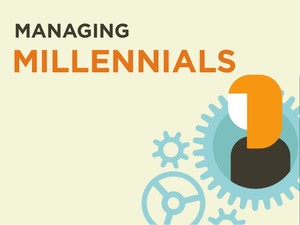Posted on Nov 11, 2019
For many workers of the Baby Boomer generation, working long hours and leaving vacation time on the table is not uncommon. A 2016 Bankrate survey found that more than half of Americans with paid time off leave a minimum of seven days of vacation time unused each year. The reasons vary. Some employees fear being viewed as less committed to their jobs, while others find their workload so demanding they don’t feel they can take time off.
However, overwork can lead to lowered productivity, burn-out, and a host of mental and physical problems. Companies may pay lip service to “work-life balance,” but millennials in the workplace are increasingly more inclined to insist on it. Technology has allowed more people to work remotely than ever before, and millennials are less likely to accept that work can only be done while in the office, within the stricture of the 8 – 5 pm workday.
“I work hard and get the job done,” stated one 29-year-old project manager. “But I don’t need to be in the office every day. I’m more productive when I work from home a few days a week. I don’t have to fight the traffic, and there’s flexibility if I need to go to a doctor’s appointment or pick up my child from school.” In fact, flexibility has been cited in a number of workforce surveys as a top feature workers want in a job, just behind competitive pay and benefits.
Employers are not always comfortable giving workers this level of freedom, but changes are happening even in larger, traditional workplaces as millennials enter the workplace in greater numbers. Employers should be prepared for a generation of workers who are more likely to vote with their feet and leave a job that doesn’t challenge them, allow them adequate work-life balance, or align with their values and ideals. Unlike previous generations who might have stayed with one company for life, millennials are eager job-hoppers. A Gallup poll found that millennials are the least engaged generation in the workplace, with 6 out of 10 reporting that they were open to new job opportunities, and 36% willing to switch to a new employer within the year.
What does this mean for employers, given the high costs of turnover? Management experts recommend that managers and supervisors consider allowing employees greater flexibility, helping younger workers identify opportunities to improve their skills and advance, encouraging and guiding them as mentors, giving meaningful feedback, promoting strong and consistent company culture, and focusing more on results rather than rules.
In turn, millennials may in fact be paving the way for true work-life balance for older workers too.
----
This material is provided for informational purposes only, and is not intended as authoritative guidance, legal advice, or assurance of compliance with state and federal regulations.
Back to Blogs Helpful Resource Links
